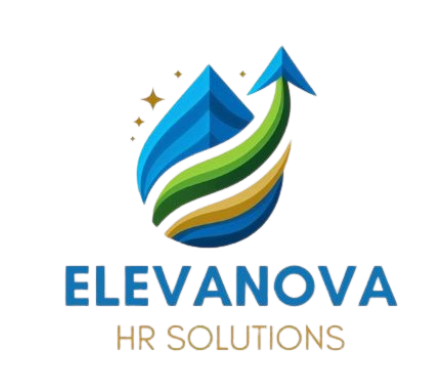In today’s fast-evolving work environment, hybrid teams have become the new norm, blending in-office and remote talent to drive innovation and productivity. However, managing these diverse teams effectively requires a strategic approach that leverages the latest tools and best practices. In this blog post, we explore actionable strategies, cutting-edge technologies, and invaluable tips for navigating the challenges and unlocking the full potential of hybrid team management.
Embracing the Hybrid Work Model
The hybrid work model offers unparalleled flexibility, but it also demands a new approach to leadership and collaboration. Successful hybrid teams thrive on clear communication, strong trust, and shared accountability. Here are some core principles to set the stage:
- Clear Expectations: Define roles, responsibilities, and performance metrics to ensure that every team member knows what is expected regardless of their location.
- Transparent Communication: Cultivate an environment where information flows freely and team members are encouraged to share ideas and challenges.
- Flexible Scheduling: Recognize the diverse needs of your workforce by offering flexible hours and accommodating different time zones.
Essential Tools for Hybrid Team Management
Leveraging the right technologies can bridge the physical gap between team members and create a seamless collaborative experience. Consider integrating these state-of-the-art tools into your workflow:
Communication and Collaboration Platforms
- Microsoft Teams and Slack: These platforms offer robust messaging, file sharing, and video conferencing features, enabling real-time collaboration and keeping everyone connected.
- Zoom and Google Meet: With advanced features such as breakout rooms, virtual whiteboards, and seamless integration with calendar systems, these video conferencing tools are ideal for virtual meetings and brainstorming sessions.
- Miro and MURAL: For teams that thrive on visual collaboration, these digital whiteboarding tools facilitate interactive sessions, allowing remote and in-office teams to collaborate on projects, mind maps, and design thinking exercises.
Project and Task Management Solutions
- Asana, Trello, and Monday.com: These tools streamline project management by enabling task tracking, deadline management, and progress monitoring. They provide a centralized hub where team members can update their statuses and collaborate effectively.
- Jira and ClickUp: Ideal for tech and agile teams, these platforms offer advanced project tracking, customizable workflows, and real-time reporting, ensuring transparency and accountability across the team.
Time Management and Productivity Tools
- Toggl and Harvest: Time-tracking tools help monitor productivity, manage workloads, and provide insights into how team members spend their work hours, ensuring efficient resource allocation.
- Focus Booster and RescueTime: These applications assist in minimizing distractions and enhancing individual productivity, crucial for maintaining a high-performing hybrid team.
Innovative Strategies for Leading Hybrid Teams
Beyond adopting the right tools, successful hybrid team management requires innovative leadership strategies tailored to a distributed workforce:
Foster a Culture of Inclusion and Engagement
- Virtual Team Building: Organize regular virtual events, online coffee breaks, and interactive workshops to build rapport and strengthen team cohesion.
- Inclusive Meetings: Ensure that all voices are heard by rotating meeting facilitators and using technology features like live polls and breakout sessions to engage remote participants.
Enhance Communication Practices
- Regular Check-Ins: Schedule daily or weekly stand-ups and one-on-one meetings to maintain alignment, address challenges, and provide timely feedback.
- 360-Degree Feedback: Implement continuous feedback loops that allow team members to share insights and suggestions, fostering a culture of continuous improvement.
Data-Driven Decision Making
- Analytics and Reporting: Utilize built-in analytics features in project management tools to track performance metrics, identify bottlenecks, and adjust strategies in real time.
- Employee Engagement Surveys: Regularly gauge employee sentiment through surveys and pulse checks, leveraging insights to refine management practices and improve team morale.
Prioritize Well-being and Work-Life Balance
- Flexible Work Arrangements: Encourage a balance between professional and personal life by supporting flexible schedules and remote work options.
- Mental Health Resources: Provide access to wellness programs, mental health support, and stress management resources to ensure your team remains resilient and engaged.
Conclusion
Managing hybrid teams is both an art and a science—requiring a thoughtful blend of innovative tools, strategic leadership, and a culture that values communication and inclusivity. By embracing modern collaboration platforms, integrating project management solutions, and fostering a supportive and data-driven work environment, organizations can unlock the full potential of their hybrid workforce.
At Elevanova HR Solutions, we are dedicated to empowering leaders with the insights and strategies needed to navigate the complexities of the modern workplace. Whether you’re just beginning your hybrid journey or looking to refine your existing model, our expert guidance can help you achieve sustained success.
Stay tuned to our blog for more insights and actionable tips on mastering the future of work. Ready to elevate your hybrid team management? Contact us today and discover how we can help you drive productivity, innovation, and engagement in your organization.

